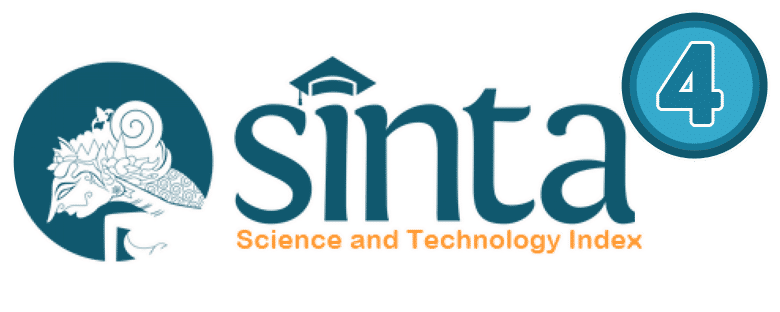The Application of Classical Guidance Based on Problem-Based Learning to Improve Students' Positive Emotions
DOI:
https://doi.org/10.24114/icp.v6i1.66088Keywords:
Classical Guidance, Problem-Based Learning, Positive Emotions, Junior High School StudentsAbstract
This study aims to determine the application of classical guidance services based on Problem Based Learning in improving the positive emotions of seventh grade students at SMP Negeri 5 Percut Sei Tuan. This study uses the Guidance and Counseling Action Research method in two cycles, each consisting of the stages of planning, implementation, observation, and reflection. The research subjects were 30 students exhibiting symptoms of low positive emotions, such as low self-confidence, decreased motivation to learn, and low academic optimism. The instrument used was a Likert scale questionnaire. The measurement results showed an increase in the average score from 58.25 on the pre-test to 66.50 on the post-test of Cycle I, and further increased to 76.50 on the post-test of Cycle II. These findings demonstrate that classical guidance services based on Problem-Based Learning are effective in enhancing students' positive emotions, both individually and in groups. This study recommends the Problem-Based Learning method as a contextual, reflective, and collaborative approach to support the psychological well-being of students at the junior high school level.References
Arul, M. F. R., & Ulfa, U. D. R. (2024). Keefektifan Layanan Bimbingan Klasikal Teknik Problem Based Learning Untuk Meningkatkan Kesadaran Beragama. Jurnal Bimbingan Konseling Dan Psikologi, 4(1), 95–106. https://doi.org/10.56185/jubikops.v4i1.495
Astuti, R. H. Y., Suhendri, S., & Indraswati, V. (2024). Upaya Meningkatkan Kepercayaan Diri Siswa Kelas IX H Melalui Bimbingan Klasikal Model Problem Based Learning Di SMP Negeri 1 Semarang. Educatio, 19(1), 200–209. https://doi.org/10.29408/edc.v19i1.25807
Engle, K. K. (2017). Problem-Based Learning: An Approach to Medical Education. In The American Journal of Occupational Therapy (Vol. 35, Issue 8, pp. 539–539). https://doi.org/10.5014/ajot.35.8.539b
Hasmiati, Oslan, J., & Rachmawaty. (2018). Penerapan Model Problem Based Learning (PBL) dalam Meningkatkan Kemampuan Berpikir Kreatif dan Hasil Belajar Siswa. Prosiding Seminar Nasional Biologi Dan Pembelajarannya, 257–262.
Lailah, A., Khotimah, N., Hariastuti, R. T., & Mardiyas, S. (2024). Implementasi Bimbingan Klasikal dengan Teknik Problem Based Learning (PBL) untuk Meningkatkan Interaksi Sosial Siswa Kelas XI Sekolah Menengah Atas. Journal of Education Research, 5(2), 1943–1946. https://doi.org/10.37985/jer.v5i2.1121
Laksono, H. Tri. (2025). Efektivitas Bimbingan Kelompok Teknik Problem Based Learning Untuk Menumbuhkan Efikasi Diri Akademik Pelajar Kelas 7B. 2009, 309–318.
Latipun. (2020). Konseling Kelompok Perilaku Antisosial : Pengaruh Konseling Kelompok terhadap Penurunan Perilaku Antisosial pada Remaja di Lembaga Pemasyarakatan Anak. Konseling Kelompok Perilaku Antisosial, 100.
Nu’man, M. (2023). Efektivitas Bimbingan Klasikal Metode Problem Based Learning terhadap Kontrol Diri siswa SMON 34 Semarang. Aleph, 87(1,2), 149–200. https://repositorio.ufsc.br/xmlui/bitstream/handle/123456789/167638/341506.pdf?sequence=1&isAllowed=y%0Ahttps://repositorio.ufsm.br/bitstream/handle/1/8314/LOEBLEIN%2C LUCINEIA CARLA.pdf?sequence=1&isAllowed=y%0Ahttps://antigo.mdr.gov.br/saneamento/proees
Pradnyasari, P. A., & Tjakrawiralaksana, M. A. (2021). Efektivitas Penerapan Anger Management Dalam Meningkatkan Kemampuan Mengelola Emosi Marah Pada Remaja Laki-Laki. Jurnal Psikologi Insight, 5(1), 19–29. https://doi.org/10.17509/insight.v5i1.34134
Salsabila, Y. R., & Muqowim. (2024). Korelasi Antara Teori Belajar Konstruktivisme Lev Vygotsky Dengan Model Pembelajaran Problem Based Learning (Pbl). LEARNING : Jurnal Inovasi Penelitian Pendidikan Dan Pembelajaran, 4(3), 813–827. https://doi.org/10.51878/learning.v4i3.3185
Wikipedia. (2020). Self Determination Theory - Wikipedia. https://en.wikipedia.org/wiki/Self-determination_theory
Downloads
Published
How to Cite
Issue
Section
License
Copyright (c) 2025 Senia Pradirga Lasambouw

This work is licensed under a Creative Commons Attribution-ShareAlike 4.0 International License.
Authors who publish with this journal agree to the following terms:
- Authors retain copyright and grant the journal right of first publication with the work simultaneously licensed under a Creative Commons Attribution License that allows others to share the work with an acknowledgement of the work's authorship and initial publication in this journal.
- Authors are able to enter into separate, additional contractual arrangements for the non-exclusive distribution of the journal's published version of the work (e.g., post it to an institutional repository or publish it in a book), with an acknowledgement of its initial publication in this journal.
- Authors are permitted and encouraged to post their work online (e.g., in institutional repositories or on their website) prior to and during the submission process, as it can lead to productive exchanges, as well as earlier and greater citation of published work.







